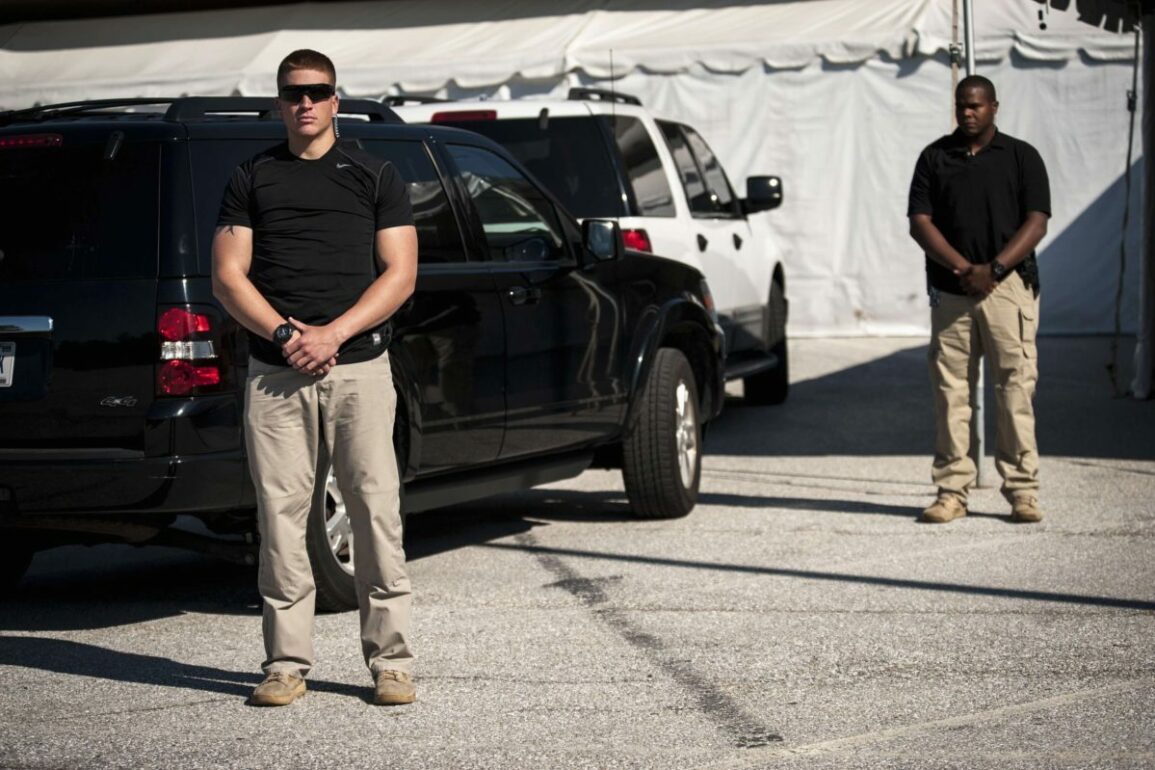Introduction to Security Sub-Contractor Agreements
In the security industry, subcontractor agreements play a crucial role in establishing clear terms and responsibilities between security companies and subcontractors. In this expert guide tailored to the laws of England and Wales, we’ll delve into the key components, legal considerations, and best practices for drafting and executing a comprehensive security subcontractor agreement.
Understanding the Legal Framework
Before drafting a security subcontractor agreement, it’s essential to understand the legal framework governing subcontracting relationships in England and Wales. This includes relevant legislation such as the Contracts (Rights of Third Parties) Act 1999 and the Construction Act 1996, which outline the rights and obligations of subcontractors and main contractors.

Kezy Components of a Security Sub-Contractor Agreement
A well-crafted security subcontractor agreement should include the following key components:
- Parties Involved: Clearly identify the main contractor (security company) and the subcontractor, including their contact details and legal entities.
- Scope of Work: Define the scope of work to be performed by the subcontractor, including specific tasks, responsibilities, and performance standards.
- Payment Terms: Outline the payment terms, including rates, payment schedule, invoicing procedures, and any penalties for late payment.
- Duration of Agreement: Specify the duration of the agreement, including the start date, end date, and any provisions for termination or renewal.
- Insurance and Indemnity: Clarify the insurance requirements for the subcontractor, including liability insurance, worker’s compensation, and indemnity provisions to protect both parties from potential legal liabilities.
- Confidentiality and Non-Disclosure: Include provisions to protect confidential information shared between the parties and prohibit the subcontractor from disclosing sensitive information to third parties.
- Dispute Resolution: Establish a mechanism for resolving disputes between the parties, such as mediation, arbitration, or litigation, and specify the applicable jurisdiction.
- Health and Safety: Ensure compliance with health and safety regulations, outlining the subcontractor’s responsibilities for maintaining a safe working environment and adhering to relevant safety protocols.
- Intellectual Property Rights: Address ownership rights to any intellectual property created or developed during the course of the subcontractor’s work and clarify the use of trademarks, logos, or branding.
- Miscellaneous Provisions: Include any additional provisions necessary to address specific circumstances or requirements unique to the subcontracting relationship.
Best Practices for Drafting and Negotiating
When drafting and negotiating a security subcontractor agreement, it’s essential to:
- Seek legal advice from a qualified solicitor or legal expert familiar with subcontracting laws in England and Wales.
- Clearly define the rights and obligations of each party to avoid misunderstandings or disputes.
- Ensure that the agreement complies with relevant legislation and industry standards.
- Maintain open communication and negotiate terms that are fair and equitable for both parties.
Conclusion
A well-drafted security subcontractor agreement is essential for establishing a mutually beneficial relationship between security companies and subcontractors, providing clarity, protection, and peace of mind for all parties involved.
What is a security subcontractor agreement?
A security subcontractor agreement is a legally binding contract between a security company (main contractor) and a subcontractor outlining the terms and conditions of their working relationship. It defines the scope of work, payment terms, responsibilities, and other relevant provisions.
What are the main components of a security subcontractor agreement?
Answer: The main components typically include details of the parties involved, scope of work, payment terms, duration of the agreement, insurance requirements, confidentiality provisions, dispute resolution mechanisms, health and safety obligations, and any miscellaneous provisions.
Why is a security subcontractor agreement necessary for security companies and subcontractors?
A security subcontractor agreement provides clarity and protection for both parties by clearly defining their rights, obligations, and expectations. It helps mitigate risks, prevents misunderstandings, and establishes a framework for a successful working relationship.
What legal considerations should be addressed in a security subcontractor agreement?
Legal considerations may include compliance with relevant legislation, such as employment laws, health and safety regulations, data protection laws, and intellectual property rights. It’s essential to ensure that the agreement adheres to applicable laws and regulations.
Can a security subcontractor agreement be tailored to specific project requirements?
Yes, a security subcontractor agreement can be customized to accommodate the unique requirements of each project. This may include adjusting the scope of work, payment terms, insurance coverage, and other provisions to align with the project’s needs.
What are the typical payment terms outlined in a security subcontractor agreement?
Typical payment terms may include the rate of payment, payment schedule (e.g., weekly, monthly), invoicing procedures, penalties for late payment, and any additional expenses or reimbursements.
How long does a security subcontractor agreement typically last?
The duration of a security subcontractor agreement can vary depending on the project’s duration and the parties’ preferences. It may range from a single project or assignment to an ongoing contractual relationship with provisions for termination or renewal.
What happens if there is a dispute between the security company and subcontractor?
Dispute resolution mechanisms should be outlined in the agreement, such as mediation, arbitration, or litigation. Both parties should follow the agreed-upon procedures for resolving disputes in a fair and timely manner.
Are there any insurance requirements for subcontractors outlined in a security subcontractor agreement?
Yes, security subcontractor agreements often include insurance requirements, such as liability insurance, worker’s compensation insurance, and any other relevant coverage to protect both parties from potential liabilities.
Can a security subcontractor agreement be terminated early, and if so, what are the procedures for termination?
Yes, a security subcontractor agreement can typically be terminated early under certain circumstances, such as breach of contract, non-performance, or mutual agreement. The procedures for termination should be clearly outlined in the agreement, including notice periods and any associated penalties or obligations.
[Security Company Logo/Name]
Security Sub-Contractor Agreement
This Security Sub-Contractor Agreement (“Agreement”) is entered into on [Date], between [Security Company Name], a company registered in [Country] with company registration number [Registration Number] and registered office at [Address] (“Main Contractor”), and [Subcontractor Name], a company registered in [Country] with company registration number [Registration Number] and registered office at [Address] (“Subcontractor”).
Scope of Work
The Subcontractor agrees to provide security services as detailed in Schedule A attached hereto (the “Services”).
The Services shall be performed at [Location(s)] and during the hours specified in Schedule A.
Payment
The Main Contractor agrees to pay the Subcontractor [Payment Terms] for the Services rendered, as outlined in Schedule B.
Invoices shall be submitted by the Subcontractor on a [Frequency] basis and shall include detailed breakdowns of services rendered.
Duration of Agreement
This Agreement shall commence on [Start Date] and shall continue in effect until terminated as provided herein.
Either party may terminate this Agreement upon [Notice Period] written notice to the other party.
Insurance
The Subcontractor shall maintain adequate insurance coverage, including but not limited to public liability insurance, worker’s compensation insurance, and any other insurance required by law or as specified by the Main Contractor.
Confidentiality
Both parties agree to maintain the confidentiality of any proprietary or sensitive information disclosed during the course of this Agreement.
Dispute Resolution
Any disputes arising under or in connection with this Agreement shall be resolved through mediation, arbitration, or litigation as specified herein or as agreed upon by both parties.
Governing Law
This Agreement shall be governed by and construed in accordance with the laws of England and Wales.
Entire Agreement
This Agreement constitutes the entire agreement between the parties concerning the subject matter hereof and supersedes all prior agreements and understandings, whether written or oral, relating to such subject matter.
IN WITNESS WHEREOF, the parties hereto have executed this Agreement as of the date first above written.
[Signature of Main Contractor] [Signature of Subcontractor]
[Print Name of Main Contractor] [Print Name of Subcontractor]
SCHEDULES
Schedule A: Description of Services
Schedule B: Payment Terms
- Press Release – New Product Announcement - July 19, 2024
- Blog Advertising Agreement - July 18, 2024
- Free Prize Draw Terms and Conditions - July 17, 2024









